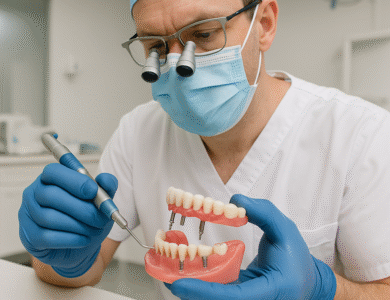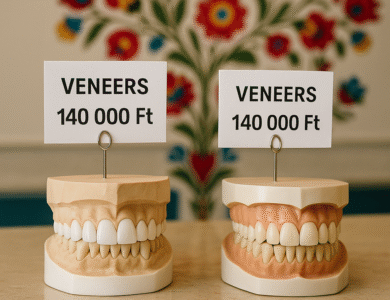
Which Country Has the Healthiest Teeth?
Oral health plays a crucial role in overall well-being, and understanding which countries have the healthiest teeth can give us insight into effective dental hygiene practices. In this article, we explore the countries known for their exceptional oral health, looking at dental care statistics and habits that contribute to having the healthiest smiles.
Leading Countries with the Healthiest Teeth
When considering which country has the healthiest teeth, several nations consistently rank highly. Let’s look at some of them in detail:
1. Sweden
Sweden is often considered a global leader in dental health. With a strong emphasis on preventive care, Swedish citizens benefit from regular dental check-ups starting from a young age. The country provides access to modern dental technologies and encourages public health campaigns focused on oral hygiene.
Key Highlights:
-
Dental caries experience rate of approximately 18% among Swedish youth.
-
Strong preventive care programs in schools.
-
High public awareness of dental health practices.
2. Norway
Norway is another country where oral health is taken very seriously. Public health education ensures that Norwegians understand the importance of proper brushing, flossing, and regular dental visits. The country has one of the lowest rates of cavities and periodontal disease in Europe.
Key Highlights:
-
About 95% of adults visit the dentist regularly.
-
Extensive oral health awareness campaigns.
-
Easy access to preventive dental care for all age groups.
3. Denmark
Denmark boasts high standards of dental care and places significant emphasis on hygiene habits from childhood. The government supports national programs to maintain oral health, contributing to consistent low rates of dental problems.
Key Highlights:
-
High dental health ranking within the EU.
-
Preventive treatments widely available.
-
Strong culture of dental check-ups and flossing.
4. Switzerland
The Swiss benefit from advanced dental technology and a well-organized healthcare system. Regular dental visits and a culture of proactive care contribute to excellent oral health outcomes.
Key Highlights:
-
Comprehensive dental care coverage.
-
Strong preventive care focus.
-
High access to modern dental treatments.
5. Japan
Japan combines cultural respect for hygiene with innovative dental practices. Japanese people often start oral care routines early, and preventive dentistry is widely promoted across the country.
Key Highlights:
-
Low rates of cavities due to dietary habits and routine care.
-
High public awareness of dental hygiene.
-
Use of advanced dental treatments and techniques.
- Japan: Japan boasts innovative dental practices and a cultural respect for oral hygiene, significantly impacting their dental health statistics.
Which Country Has the Healthiest Teeth?
Sweden and Norway lead the world in dental health, thanks to regular check-ups, preventive care, and high awareness of oral hygiene, making them the countries with the healthiest teeth.
Factors Contributing to Healthy Teeth
Several factors contribute to the oral health success seen in these countries:
1. Access to Dental Care
Countries with strong healthcare systems provide easy access to dental services. Citizens can receive regular check-ups, cleanings, and preventive treatments without financial or logistical barriers.
2. Public Education and Awareness
Oral hygiene education plays a vital role in preventing dental diseases. Countries that prioritize public awareness campaigns see better dental health outcomes among their populations. School programs, public health advertisements, and community initiatives help instill good habits from an early age.
3. Dietary Habits
Diet significantly impacts dental health. Populations that consume diets low in sugar and high in essential nutrients tend to experience fewer cavities and stronger teeth. Traditional diets rich in vegetables, fish, and low-sugar foods contribute to these outcomes.
4. Preventive Practices
The best-performing countries emphasize prevention over treatment. Regular brushing, flossing, fluoride use, and timely professional care prevent problems before they escalate, resulting in healthier teeth across all age groups.
Dental Care Statistics
Understanding dental statistics helps illustrate why some nations excel in oral health:
-
Sweden: Dental caries experience rate of 18% among youth.
-
Norway: 95% of adults visit the dentist regularly.
-
Denmark: High EU dental health ranking, low rates of cavities.
-
Switzerland: Extensive coverage for preventive and restorative dental care.
-
Japan: Low incidence of dental caries and gum disease, due to cultural and dietary factors.
These statistics highlight the impact of preventive care, education, and accessibility on oral health outcomes.
Habits Associated with Healthy Teeth
Healthy teeth are the result of consistent habits. Some key practices include:
-
Brushing Properly Twice a Day – Using fluoride toothpaste and correct brushing technique.
-
Daily Flossing – Removes plaque and food particles that a toothbrush can’t reach.
-
Regular Dental Check-ups – Ideally twice a year to detect and prevent issues early.
-
Balanced Diet – Limiting sugary and acidic foods while eating nutrient-rich meals.
-
Avoiding Tobacco and Excess Alcohol – Both can contribute to gum disease and tooth decay.
Lifestyle and Cultural Influence
Cultural practices can have a huge impact on oral health. For example, in Japan, routine dental hygiene is embedded in daily life from childhood. In Scandinavian countries, public health policies and social awareness create an environment where preventive care is the norm. These cultural factors, combined with government support and healthcare infrastructure, explain why some countries have the healthiest smiles in the world.
How to Improve Your Dental Health
While national policies play a role, individuals can take steps to improve their oral health regardless of location:
-
Schedule regular dental check-ups and cleanings.
-
Brush at least twice a day with fluoride toothpaste.
-
Floss daily and consider interdental brushes.
-
Eat a diet low in sugar and high in fruits, vegetables, and whole grains.
-
Avoid smoking and limit alcohol consumption.
-
Use dental products approved by your local dental association.
By adopting these habits, anyone can maintain a healthy smile similar to the populations in the top-ranking countries.
Conclusion
Determining which country has the healthiest teeth is not straightforward, but patterns emerge when examining access to care, public awareness, dietary habits, and preventive practices. Countries like Sweden, Norway, Denmark, Switzerland, and Japan consistently top the charts in oral health due to their strong healthcare systems, cultural respect for hygiene, and commitment to preventive dentistry.
Healthy teeth are achievable everywhere, and learning from the practices of these nations can help individuals and communities improve oral health outcomes.
FAQs
Q1: What are the key habits associated with healthy teeth?
A: Key habits include regular dental check-ups, proper brushing and flossing techniques, and maintaining a balanced diet low in sugars.
Q2: How often should I visit the dentist?
A: It is generally recommended to visit the dentist at least twice a year for regular check-ups and cleanings.
Q3: Can diet affect dental health?
A: Yes, a diet rich in fruits, vegetables, and whole grains while low in sugars and acids can significantly enhance dental health.
Q4: Are dental technologies important for healthy teeth?
A: Yes. Advanced treatments, preventive tools, and fluoride use significantly contribute to oral health.
Q5: Can public awareness campaigns really improve dental health?
A: Definitely. Education about brushing, flossing, and regular dental visits can reduce the prevalence of cavities and gum disease.
If you’re looking to improve your dental health or connect with healthcare providers, consider downloading Docintur. It’s an excellent resource to connect with physicians, hospitals, and clinics. Get started today by downloading Docintur on the App Store for iOS devices and on Play Store for Android devices.





